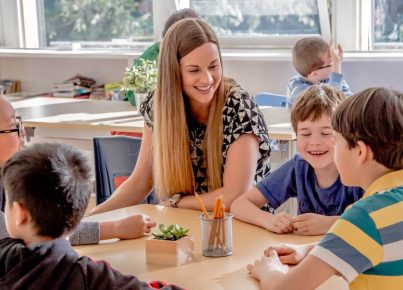Introduction:
In an ever-evolving world, the approach of “We’ve always done it this way” no longer suffices in most industries, and especially not for schools. Education has undergone significant changes over the past decade, with advancements in technology and an increasing emphasis on meeting diverse learner needs. This article will explore the reasons why sticking to traditional educational practices is no longer viable and highlight the importance of adapting to new methods.
Embracing Change and Diversity:
Today’s classrooms are more diverse than ever. Students come from different cultures, backgrounds, and experiences – all factors that influence their learning needs. A one-size-fits-all approach doesn’t work in such a varied environment, requiring schools to adapt their teaching methods and curricula to better address individual needs. Acknowledging this diversity and implementing inclusive learning strategies can lead to a more enriching educational experience for all students.
Technological Advancements:
The rapid development of technology has changed virtually every aspect of our lives, including how we learn. From digital whiteboards to online resources, schools must integrate these advancements into their classrooms to provide engaging experiences for 21st-century learners. Sticking to conventional teaching methods risks leaving students ill-equipped for modern society where technological proficiency is key.
Developing Critical Thinking and Problem-Solving Skills:
In today’s fast-paced world, it’s crucial for students to develop critical thinking and problem-solving skills that go beyond memorization and regurgitation of information. Schools must shift from traditional lecture-based teaching models towards more interactive methods that promote active learning, collaboration, and higher-order thinking. By doing so, they can prepare students for future challenges both in the workplace and in life.
Meeting Workforce Demands:
As industries evolve at breakneck speed due to globalization and technology, workforce demands are changing as well. Employers increasingly seek candidates with a wide range of skills, including those associated with interdisciplinary knowledge, adaptability, and strong communication abilities. To better prepare students for these new requirements, schools must rethink their approach to education and develop programs that emphasize collaboration and real-world problem-solving.
Conclusion:
While change can be challenging, educators must recognize that the traditional ways of teaching are no longer sufficient to prepare students for the complex world in which we live. By embracing progressive educational practices and harnessing the power of technology, schools can offer more inclusive and engaging learning experiences that cater to diverse learner needs. In doing so, they can truly prepare students for success in the 21st century.




